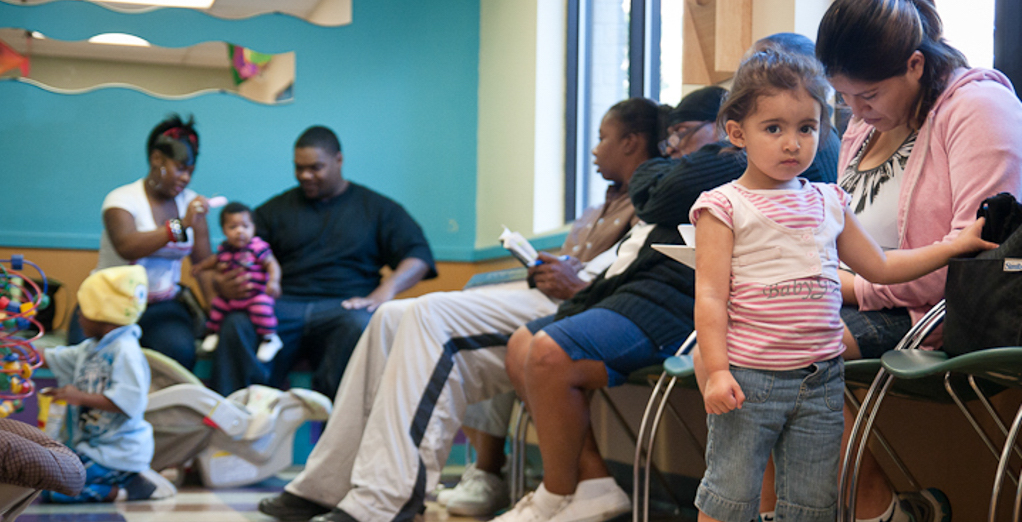Photo: Callie Richmond
Undocumented immigrants are human beings. They work, love, have fun, and — like everyone else — get sick. Sometimes they get really sick, the kind of sick that requires comprehensive, ongoing treatment and lots of community support.
But unlike everyone else, it is nearly impossible for undocumented immigrants to get the medical attention they need and deserve. Undocumented immigrants rarely receive health insurance through an employer, and they don’t qualify for Obamacare or government safety net insurance programs. Texas’ most recent wave of anti-immigrant sentiment, culminating in passage of the racist, anti-sanctuary-city, show-me-your-papers Senate Bill 4, further threatens the lives and wellbeing of our most vulnerable Texas families.
Avoidance of health and social institutions because of fear of deportation or discrimination has lasting impacts on a person’s health. It’s not surprising that immigrants are less likely to seek health care after an immigration crackdown; we see a decrease in access to prenatal care and emergency rooms, and even drops in reports of domestic and sexual violence, by immigrants after federal Immigration and Customs Enforcement raids.
Fear of releasing information to the government has led many undocumented parents to remove their U.S. born children from health programs such as Children’s Medicaid and food stamp benefits. For reference: there were 4.6 million U.S. citizen kids with undocumented parents in 2013.
The passage of SB 4 alongside impending federal health care reform should wake up Texas’ health and immigration leaders to the very real implications of the intersections of their fields. These leaders should catalyze a lifesaving public dialogue to reform health care delivery and fight against dangerous health and immigration policies. Our health care institutions need to be safer, more inclusive spaces. Immigrant rights groups need to consider health implications in their organizing, and hospitals and clinics need to speak up about immigration policies that hurt their ability to provide care.
Recent attacks against both health care access and immigrant communities can amplify our voices, giving us momentum to convene health care and immigration leaders at the same table. We must reconcile the past treatment of immigrants and people of color by medical institutions, and we need to come to terms with the way health care funding systems dehumanize patients of all kinds. Out of the ashes of these conversations can rise a new solidarity, and a shared vision of compassionate and sensitive care for all people. Together we can fundamentally transform the way undocumented immigrants access health care in this state, moving past band-aid solutions and toward a more just and equitable model.
As President Trump has realized, our health care system is complicated. Hospitals and clinics are funded through a combination of private insurance, public safety net programs, self-pay patients, tax breaks, grants and donations. Health care institutions are still catching up to the changes brought by the Affordable Care Act, and they’re bracing for more change under the current administration. A refusal to bring the country’s 11 million undocumented residents into the health care system only complicates this funding model, leaving other patients to pick up the bill.
This current upheaval is an opportunity to create new and diverse alliances to provide better, more efficient care to the most vulnerable Texas communities. The funding for these new ideas and coalitions won’t come from the federal government, the Centers for Disease Control or the National Institutes of Health, but the money is out there. Health care organizations should look beyond traditional funding models and build alliances with innovative foundations looking to enact long-term systemic change.
The U.S. health care system is in limbo, and our immigration policy is getting worse by the day. It is time for systems-level thinking that takes into account how public policies directed at undocumented immigrants affect everyone else’s health and wellbeing. Together, health care and immigrant rights leadership can create healthier, safer lives for our most vulnerable Texas families.
This column was originally published on Trib Talk, a publication of the Texas Tribune. The Texas Tribune is a nonprofit, nonpartisan media organization that informs Texans — and engages with them — about public policy, politics, government and statewide issues.

